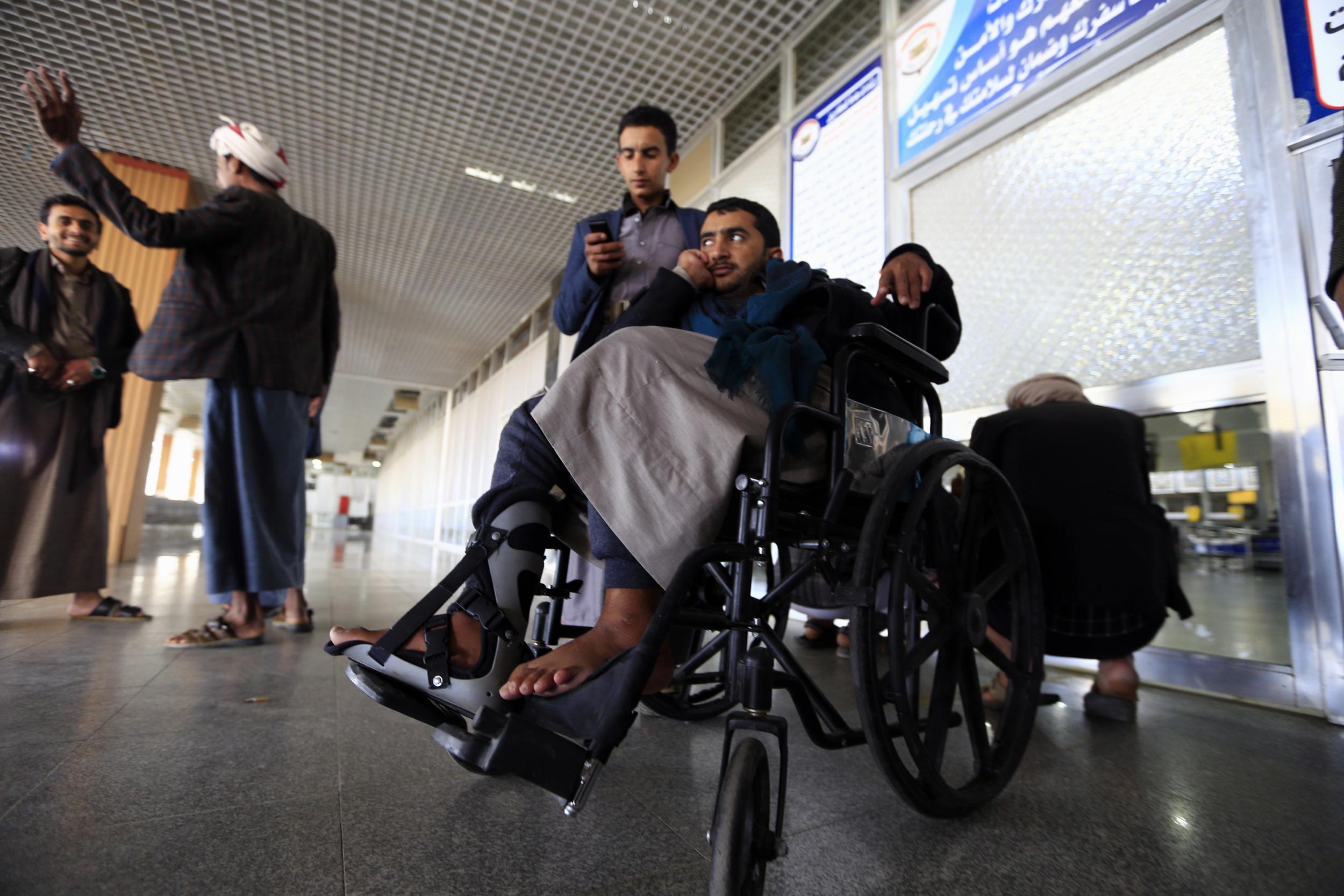Yemen government and Houthi rebels agree prisoner swap deal ahead of UN-brokered peace talks
Thousands of prisoners from both sides will be released as part of a UN-brokered deal, agreed as a rebel delegation flew out of Sana’a for peace talks in Sweden

Your support helps us to tell the story
From reproductive rights to climate change to Big Tech, The Independent is on the ground when the story is developing. Whether it's investigating the financials of Elon Musk's pro-Trump PAC or producing our latest documentary, 'The A Word', which shines a light on the American women fighting for reproductive rights, we know how important it is to parse out the facts from the messaging.
At such a critical moment in US history, we need reporters on the ground. Your donation allows us to keep sending journalists to speak to both sides of the story.
The Independent is trusted by Americans across the entire political spectrum. And unlike many other quality news outlets, we choose not to lock Americans out of our reporting and analysis with paywalls. We believe quality journalism should be available to everyone, paid for by those who can afford it.
Your support makes all the difference.Yemen’s recognised government and the Houthi rebels have agreed to a massive prisoner swap to boost UN efforts for a ceasefire deal, as a rebel delegation flew to Sweden for a fresh round of peace talks.
The agreement was struck by UN envoy Martin Griffiths, who was in the rebel-held capital Sana’a on Tuesday to ensure the Houthis travelled to the talks which are expected to start in Sweden within the next few days.
Under the deal, thousands of prisoners from both sides of the conflict will be released as a key confidence-boosting measure ahead of the negotiations.
Yemeni government official Hadi Haig told AFP that between 1,500 and 2,000 members of pro-government forces and between 1,000 and 1,500 rebels would be released.
Among those who are due to be released is Yemen’s former defence minister Mahmoud al-Subaihi, who has been held by the rebels since before the start of the war. President Abedrabbo Mansour Hadi’s brother Nasser, a general and former senior intelligence official, will also be freed.
The move was immediately welcomed by the International Committee of the Red Cross (ICRC), which will oversee the exchange.
ICRC spokesperson Mirella Hodeib said: “This is one step in the right direction towards the building of mutual trust among Yemeni communities.”
Rebel official Abdel Kader al-Murtadha confirmed the deal, adding that he hoped it would be “implemented without problem”.
Much hope is being pinned on the talks which, if they go ahead, will be the first to take place since 2016.
The three and half year war has sparked the world’s worst humanitarian crisis in terms of numbers and pushed the country to the brink of famine. The United Nations fear as many as 14 million people could starve to death if the fighting rages on and food prices continue to soar.
The conflict first erupted in the spring of 2015 after the Iran-backed Houthi rebels swept control of the country, ousting the recognised President Abedrabbo Mansour Hadi. Saudi Arabia and its Gulf allies quickly launched a bombing campaign to reinstate Mr Hadi, fearing the encroachment of Iran’s influence on its borders.
Little progress towards peace has been made until this week.
Attempts to hold talks were scuppered in September when the Houthis refused to attend unless their wounded were treated outside of Yemen, a request refused by the other side.
However, 50 injured Houthi fighters were finally permitted to fly to Oman on Monday for treatment in a goodwill gesture which paved the way for the talks.
The United Arab Emirates, which is a key backer of the recognised government, said the planned talks offered a “critical opportunity” to end nearly four years of devastating war.
Rebel spokesperson Mohammed Abdelsalam, meanwhile, confirmed the rebel delegation’s departure from Sana’a on Twitter, saying the Houthis “will spare no effort to make a success of the talks to restore peace and end the aggression”.
British foreign secretary Jeremy Hunt said he believed the “mood has changed” and said attendance for the talks looked “positive”.
He added: “What’s bedevilled these talks to date is that both sides have thought that a military victory is possible, but this is the first time for two years that the parties have come round a table together and I do think the mood has changed, so I think we want to do everything we can to support it.”
I do think the mood has changed, so I think we want to do everything we can to support it
The UN’s humanitarian aid chief Mark Lowcock, however, was more cautious, saying he didn’t expect “easy or rapid process” in the talks.
Mr Lowcock, who is head of the Office for the Coordination of Humanitarian Affairs, said the “onus” in the peace talks is on Yemen’s government and the Houthi rebels to “take this seriously and act in a responsible way”.
He added that around 24 million people in Yemen – roughly 75 per cent of the population – will need humanitarian assistance in 2019.
David Miliband, president of the International Rescue Committee, urged the US and Britain to use their influence as military supporters of the Saudi-led coalition to “encourage meaningful dialogue in these talks”.
“It’s time for world leaders to listen to their constituents and help end the unmitigated suffering of the Yemeni people,” he said in a statement.
Join our commenting forum
Join thought-provoking conversations, follow other Independent readers and see their replies
Comments